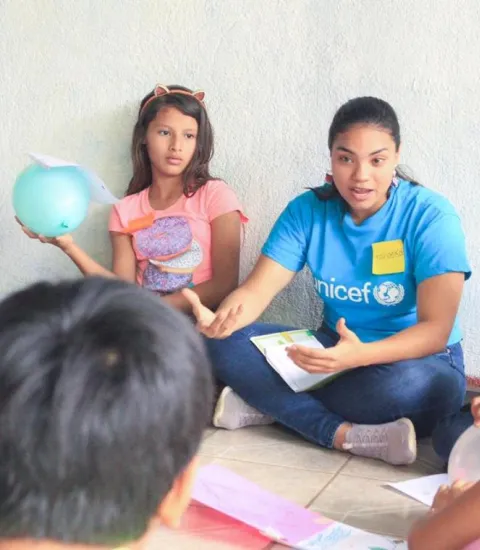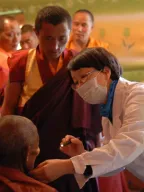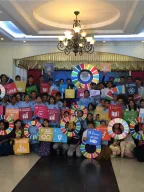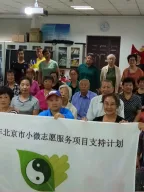
Integrating volunteering into child protection efforts in Nicaragua
UNICEF Nicaragua’s volunteering strategy mobilizes volunteers to tackle sexual violence towards children, a particular problem in Nicaraguan communities. Nicaragua has a strong culture of solidarity and volunteer movements and before the implementation of the strategy, UNICEF identified a strong demand from students to develop children’s rights activities in their communities. Through a methodology developed and facilitated by UNICEF with the support of the Universities, the volunteers were placed at the center of decision-making processes to develop and design their own local projects. Methodological tools include diagnosis consultations with communities, feedback spaces at the end of the community workshops, and including volunteers in planning, monitoring and evaluation. The strategy ultimately enables UNICEF Nicaragua to have direct contact with communities which has often been challenging to achieve through institutional cooperation and this has, for example, facilitated an agile, community-led response to the COVID-19 pandemic. Volunteers used the participatory methodology they are trained to use as part of the UNICEF strategy to rapidly identify needs and organize volunteering solutions to address child rights issues in the context of the pandemic. Following their interventions, volunteers also contributed to the organization of a national consultation implemented by UNICEF and the Global Movement for Children to assess the impact of COVID-19 on the lives of children.
- Participatory methodologies are central to the success of the strategy. The main methodology used is an adaptation of UPSHIFT, a methodology UNICEF has developed that is accessible for young people, develop the volunteers’ skills and produces innovative community interventions.
- The strong partnerships built with universities is key for both the sustainability of the strategy and enabling it to reach very different social segments of Nicaraguan society. The strategy therefore includes capacity-building support to partners to enable them to better implement development-focused volunteering.
- To safeguard volunteers and the communities they work in, focal points are nominated for each group of volunteers to receive additional training on the prevention of sexual abuse. Volunteers, UNICEF and each universities also sign a tripartite ethical commitment charter, and all volunteers attend ethics training and reflection sessions on ethical issues.








